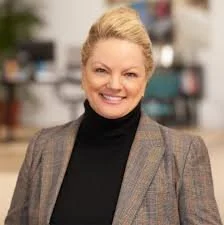In 2016, Ben Franklin Technology Partners was energized by a compelling trend: for-profit enterprises proactively, explicitly tackling meaningful problems (instead of exacerbating them). In addition, a growing community of impact-motivated investors tuned in to the idea that an investment could - and should - advance social, environmental, and economic value beyond its financial return.
Read MoreIf you are an investor, you can be an impact investor. CDFIs are the ultimate double bottom line investment – earn a return on your principal and see the impact amplified many times over. The CDFI Fund, the certifying body of CDFIs, notes that a dollar invested in a CDFI generates between 8-14x impact. Now that’s a good return on investment! The pandemic illustrated the financial services ecosystem’s failure to serve poor, disabled, and BIPOC people and communities; yet CDFIs filled the gap and succeeded in serving these overlooked and financially vulnerable populations.
Read MoreThe daunting task of reducing the racial wealth gap and preserving the beacons of hope provided by successful minority-owned businesses requires immediate action and cannot wait for the highly unlikely passage of more sweeping policy changes. ESOPs can be a vital tool for increasing the wealth of Black and brown workers while providing the region’s business owners with an opportunity to get liquidity at fair market value from their businesses and diversify their assets. ESOPs do not merely provide business owners with an opportunity for liquidity; they are also conduits for transformative impact for employees, companies, business owners, and the communities in which they are established.
Read MoreLevering the power of the food sector, the collective will deploy integrated capital investments in area food businesses to grow community health and economic resilience, including through increased ownership and wealth-building opportunities for Camden families. We do not anticipate establishing a “fund” in the technical sense but rather a networked collaboration of local and regional entities leveraging their respective balance sheets and knowledge and relationship assets to facilitate 20 to 25 investments in Camden and its surrounding areas over a three-to-five-year period.
Read MoreTourism is an industry that is crying out for impact-driven entrepreneurs and investors to do what they do best: challenge traditional norms; put capital into new places; support diverse and dynamic entrepreneurs; find ways to ensure financial returns while prioritizing people and the planet, and move industries stuck in old paradigms into a future that enhances well-being for us all.
Read MoreThe pandemic is a humanitarian crisis. And with all crises, there is an opportunity for real systemic change. As the devastation from COVID becomes fully realized, there will be a massive wave of nonperforming loan exposure. Lenders know this is coming, but what they may not fully grasp is that they have the ability to avoid it. Refinancing these loans for credit-challenged low-income consumers to a more humane lending model for existing borrowers could change the outcome for both the lender and the borrower.
Read MoreThe pandemic has highlighted the fractures in our foundation on so many levels: economic, racial, gender, or political. However, this has been going on for years, and we are seeing the results in real-time. The need for innovative solutions to economic sustainability is at a crucial juncture. Our economy is hanging on by a thread along with its people. It is time for real and practical solutions to address society’s needs and bring us into the future in a more equitable and sustainable way.
Read MoreAs growing economic inequalities and racial justice demonstrations converged, against the backdrop of a pandemic, The Enterprise Center in West Philadelphia presented a solution - The Pro Disinfect Coalition. The $1M initiative’s aim? To transform traditional Black and Brown janitorial and cleaning businesses into certified disinfectors positioned to receive investment and win new contracts in a COVID-19 world. The Enterprise Center partnered with Social Venture Circle to raise patient capital in the form of grants and 0% interest loans.
Read MoreThe US criminal justice system directly impacts 6.6 million people costing more than $80 billion per year. This profoundly broken system is marred by racial disparities, extractive business practices, and misaligned incentives. Building a supportive ecosystem to enable this new business sector to succeed will take backing from policymakers, nonprofits, investors, and service providers.
No matter where you decide to give or invest, remember what comes first: “Think Globally.” Looking through a local lens does not diminish the complexity of our global challenges. Covid-19 demonstrates how inextricably connected the world truly is and has highlighted why our responsibility cannot stop with ourselves, our families, or even our neighbors. We are all global citizens, and our purchasing, investing, and giving should reflect that.
Consider this: less than five percent of small business lending goes to women, despite the fact that about 1,800 new women-owned businesses join the United States economy each and every day. That’s roughly $1 for every $23 of lending available to small business owners. Women-owned businesses make up almost a third of all businesses in the country, but they receive just 16 percent of all conventional small business loans.
Read MoreBuilding an impactful, mission-aligned portfolio is often described as a “double bottom-line” investment exercise. This is meant to convey the notion that there are two distinct objectives that an investor is targeting – one rooted in a financial outcome and one rooted in the furthering of specific societal goals. Done properly, this exercise involves decisions that reflect the tradeoff inherent to incorporating multiple considerations, with a goal of achieving peak efficiency.
Read MoreOur nation’s bias toward over-policing has led to the killings of Breonna Taylor, George Floyd, Ahmaud Arbery, Dominique Fells, and countless others at the hands of police and law enforcement. These killings and the ensuing nationwide protests expose a rift in the foundation of the U.S. municipal market that harkens back nearly two centuries to a time when the value of Black lives and the value of municipal bonds were explicitly linked. Today, too many local governments have predicted their financial fortunes on the control and oppression of Black people. As the Movement of Black Lives advances, the assets of the criminal injustice complex-- such as jail infrastructure and extractive revenues--will evaporate, leaving behind only liabilities and expenses.
Read MoreTo have the current crisis become a turning point and a move toward true transformation, investors can — and must — play a significant role, by adopting a racial equity lens when making investment allocations. In this article, Kristin Hull, PhD provides 7 simple steps to incorporate a racial justice lens when making investment decisions.
Read MoreAs COVID-19 destroys more American lives than the Vietnam War and more American jobs than the Great Depression, all of us are being called to consider acts of adoption. Here’s an easy possibility: Adopt your favorite local business.
Read MoreIt is well-known that 26% of Philadelphians live in poverty - a persistent challenge that perpetuates our status as the United States’ poorest large city. After leading The Enterprise Center for 27 years, my experience has taught me that all of our region’s stakeholders - public and private - need to act strategically to overcome this challenge and change the lives of nearly 400,000 residents that endure poverty’s effects. I’m calling for real investment in a critical priority for 21st-century Greater Philadelphia: minority entrepreneurship.
Read MoreIn this post, I walk through my case for why investing in local businesses is inherently impact investing. After reading this, you will understand why small businesses struggle to access capital even in a strong economy, why decentralized local lenders provide fair capital, and how you and everyone around you can participate in transforming the trillion-dollar small business lending industry currently failing many local small businesses.
Read MoreJust days before Christmas 2019, and we await the gift of regulatory clarity. Word is out that final OZ regulations have made their way to the White House. Can these offer what we need to craft a path forward to use this tax-benefited capital tool to grow businesses.
Read MoreTriple Bottom Brewing is Philly’s fair chance brewery. Our team brings a wide variety of experiences and perspectives to the table. We’ve been deeply intentional about reaching out to communities of people who are traditionally excluded from the mainstream economy in order to build an inclusive business, and have developed critical partnerships with Project HOME, Mural Arts Restorative Justice Program, and the Youth Sentencing & Reentry Project to recruit and support our team members.
Read MoreSocial impact is an entity’s unmonetized external value. It is the uncaptured value of all of its outcomes - absent any moral judgment - on the interacts with via the products and services it delivers.
Read More



















